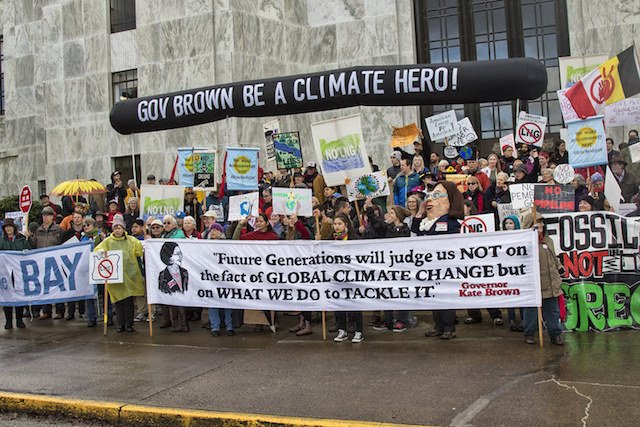Oregon groups explore options for 2020 climate action

If lawmakers again don't act, ballot measure efforts await
By Eric Tegethoff, Oregon News Service
PORTLAND, Ore. (KTVZ) -- Oregon's climate future could be decided in several ways in the New Year.
During the Legislature's short session in February, lawmakers will take another crack at a cap-and-invest bill.
In the 2019 session, Republican senators walked out of the State Capitol to prevent passage of House Bill 2020.
If the legislature doesn't take steps next year, climate advocates have ballot initiatives for the November election awaiting titles.
Brad Reed, communications director for Renew Oregon, says environmental groups are working with lawmakers again, and want them to follow through with a cap-and-invest program.
"That process is going fast and furious right now," Reed says. "There's negotiations going on to make it work in the Legislature, but what we've learned is that the legislative process is not a guarantee."
State Sen. Michael Dembrow says lawmakers are considering a proposal that would limit carbon emissions in stages, starting with the Portland area.
Opponents of HB 2020 said the bill's cost would have been passed on at the pump, which would have mainly hurt rural Oregonians, who drive longer distances and use more fuel.
The 2020 Oregon Legislative Assembly begins Feb. 3, and if there's no climate action, a coalition of Oregon groups will push for two ballot measures.
The first would require utilities to use 100% carbon-free energy sources by 2045. The second would require the state to be free of greenhouse gas pollution by 2050.
Reed says Oregon can't wait any longer, noting scientists' predictions that countries must stem carbon pollution drastically in the next decade to avoid the worst effects of climate change.
"What we do in the next 10 years is the most meaningful," he stresses. "That means that a second grader in Oregon will essentially have their climate fate sealed by the time they graduate high school."
In addition to legislative action and ballot measures, Reed says groups are asking Gov. Kate Brown to act.
They want Brown to use her executive authority to make greenhouse gas limits mandatory and intensify the clean fuels program to reduce emissions from the transportation sector faster.